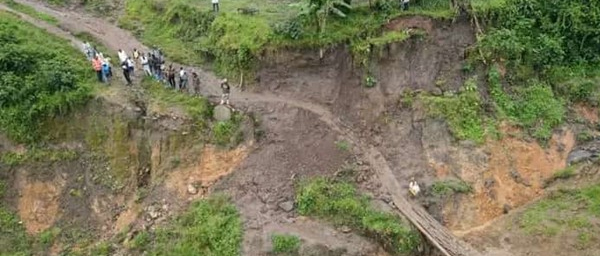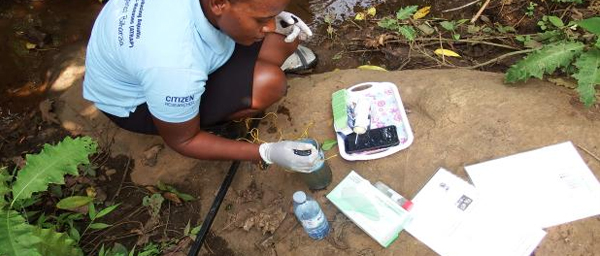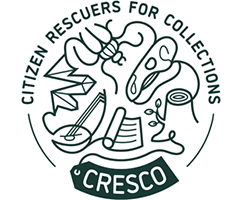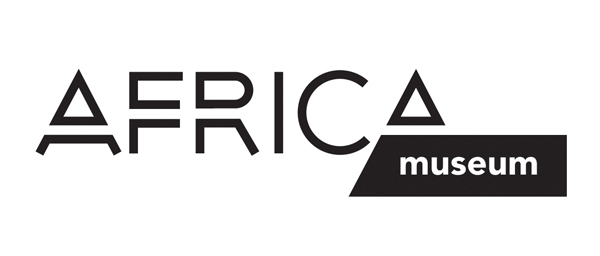

Vyakulani, “in the foods” in Swahili, focuses on exploring and celebrating the rich food traditions of African diasporas. This initiative, Vyakulani Africa, is a collaboration between The Food Bridge vzw and the AfricaMuseum. Despite the growing interest in plant-based diets, African foods do not yet receive the recognition they deserve in Europe. African diasporas stick to their traditional ingredients, which are often less known and accepted due to colonial prejudices. While other exotic foods like kimchi and quinoa are commonplace, African superfoods like millet and fonio are not yet as widely known.
The aim of the project is to raise awareness of the importance of African food systems, encourage Africans in Europe to rediscover their culinary traditions, and promote healthy African food. This will be achieved by collecting food stories by African diasporas in Belgium through a process of reflection, gathering and celebration. It is the perfect opportunity to research and celebrate the richness of the African cuisine in Europe!
More information on the project is available on the AfricaMuseum ![]() website, the Food Bridge
website, the Food Bridge ![]() website and the Instagram
website and the Instagram ![]() and Facebook
and Facebook ![]() pages!
pages!

HARISSA's ![]() long-term overall objective is to contribute to reducing the incidence of natural hazards and associated risks in Central Africa, and in particular in the western branch of the East African rift, in the DRC, Uganda, Rwanda and Burundi. In this project, specifically in the Kivu region (DRC), the RMCA is collaborating with citizen observers whose role is to collect information on disasters linked to natural hazards and to raise awareness of these phenomena among the population. The Kivu citizen observers are supervised by the North and South Kivu civil protection and researchers from the Lwiro Natural Sciences Research Centre.
long-term overall objective is to contribute to reducing the incidence of natural hazards and associated risks in Central Africa, and in particular in the western branch of the East African rift, in the DRC, Uganda, Rwanda and Burundi. In this project, specifically in the Kivu region (DRC), the RMCA is collaborating with citizen observers whose role is to collect information on disasters linked to natural hazards and to raise awareness of these phenomena among the population. The Kivu citizen observers are supervised by the North and South Kivu civil protection and researchers from the Lwiro Natural Sciences Research Centre.
A more detailed presentation can be found here ![]() .
.

ATRAP ![]() is an innovative research project taking place in Uganda, where 25 citizen scientists collaborate with researchers from the AfricaMuseum to monitor snail presence in freshwater bodies in the fight against Bilharzia. Bilharzia is a human and animal disease caused by parasitic worms which infect freshwater snails. The community members, or citizen scientists, collect and identify snails at 76 pre-selected sites. After the collection, the data is validated by master’s and PhD students from Belgium and Uganda. They all meet several times a year to discuss collection methods, findings and the best ways to raise awareness about Bilharzia. The ongoing collaboration between biologists, sociologists and citizens is what makes this project unique.
is an innovative research project taking place in Uganda, where 25 citizen scientists collaborate with researchers from the AfricaMuseum to monitor snail presence in freshwater bodies in the fight against Bilharzia. Bilharzia is a human and animal disease caused by parasitic worms which infect freshwater snails. The community members, or citizen scientists, collect and identify snails at 76 pre-selected sites. After the collection, the data is validated by master’s and PhD students from Belgium and Uganda. They all meet several times a year to discuss collection methods, findings and the best ways to raise awareness about Bilharzia. The ongoing collaboration between biologists, sociologists and citizens is what makes this project unique.
 CRESCO – Citizen Rescuers for Collections
CRESCO – Citizen Rescuers for CollectionsAre you interested in science but have no formal scientific training? Do you want to contribute to scientific research while learning about the world around you and meeting people with similar interests? You can now become a Citizen Rescuer for the biology collections of the AfricaMuseum!
As a Citizen Rescuer, you help the AfricaMuseum to preserve the biology collections by contributing to research, from home or inside the museum. You can help by transcribing and annotating labels of insects, by preparing wood samples or by cleaning and photographing bird specimens. Take a look on the AfricaMuseum ![]() website to find out more and sign up as a volunteer.
website to find out more and sign up as a volunteer.
